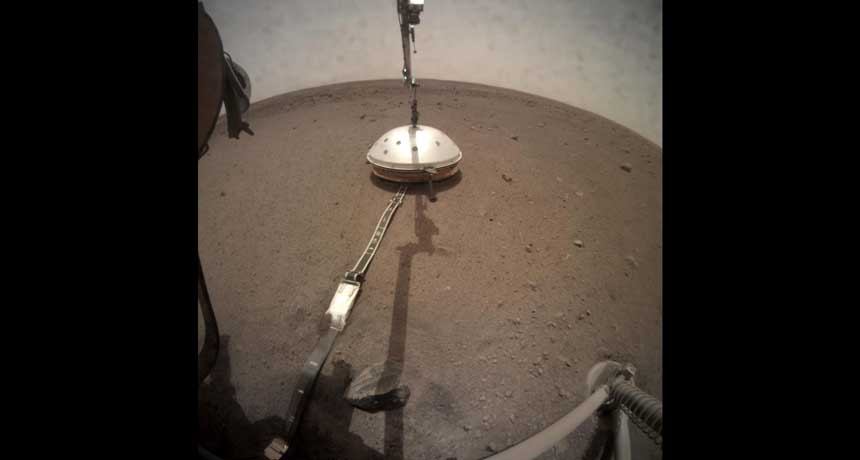NASA’s Mars InSight lander may have the first recording of a Marsquake
Here’s what a rumbling Red Planet sounds like

READY TO RUMBLE The Mars InSight lander’s seismometer is protected from strong winds and temperature extremes by this domed shield.
JPL-Caltech/NASA